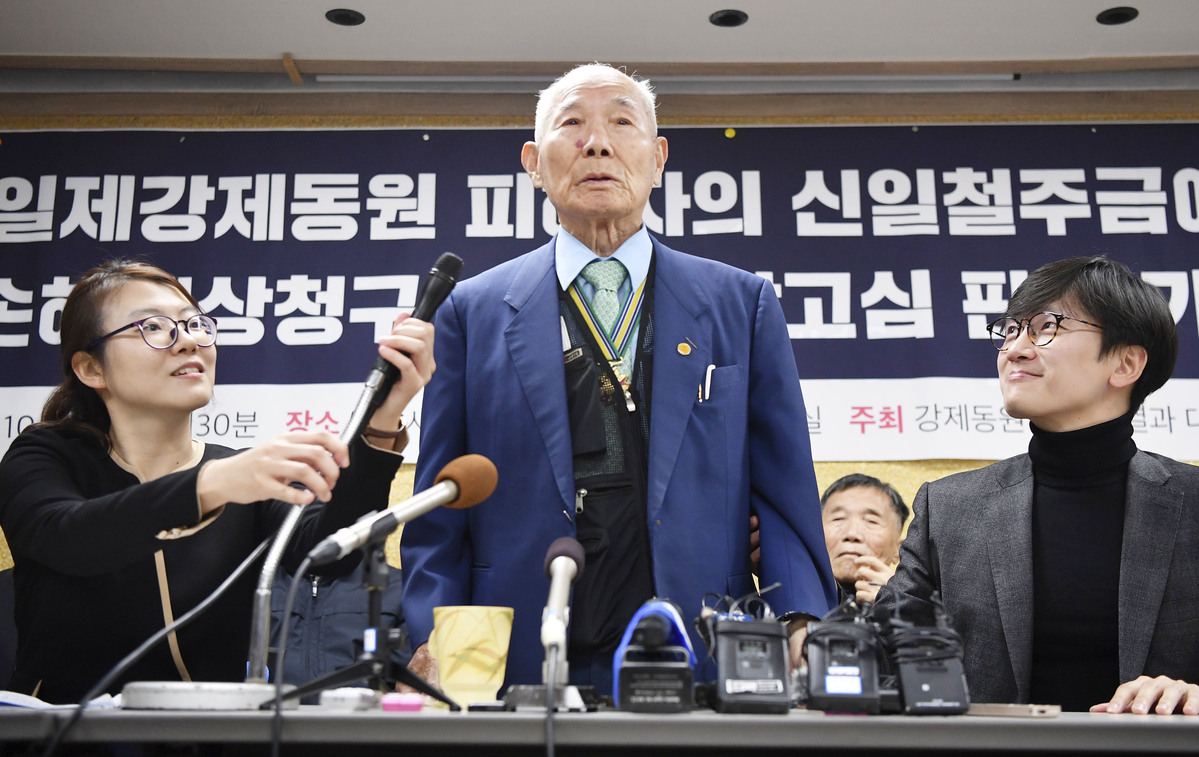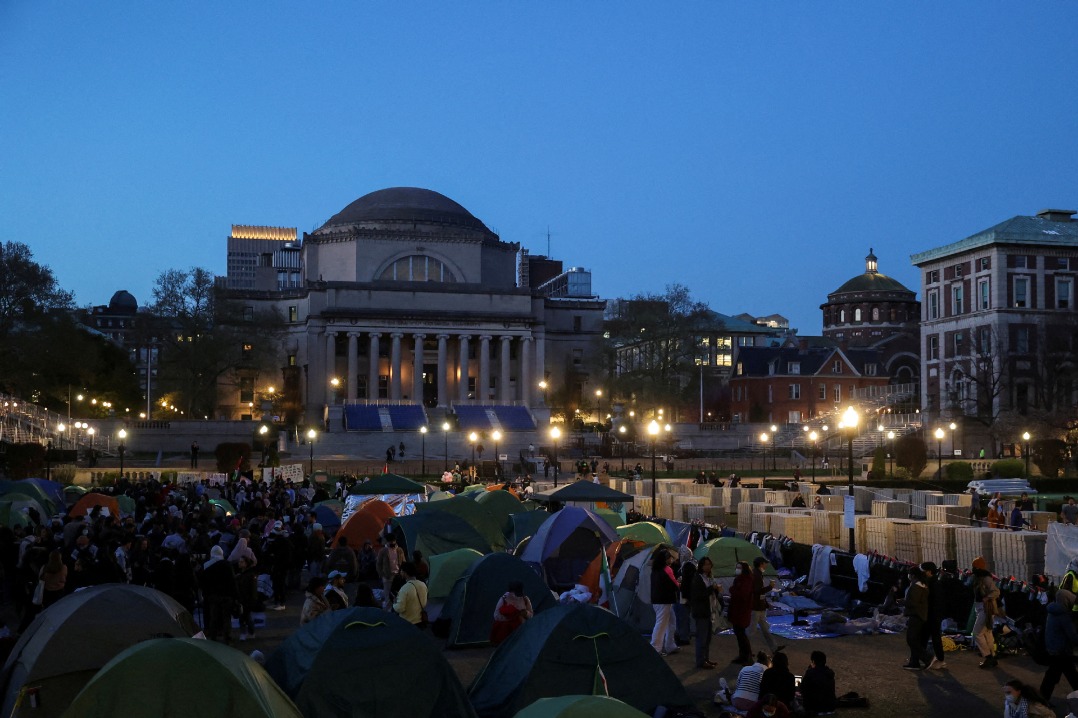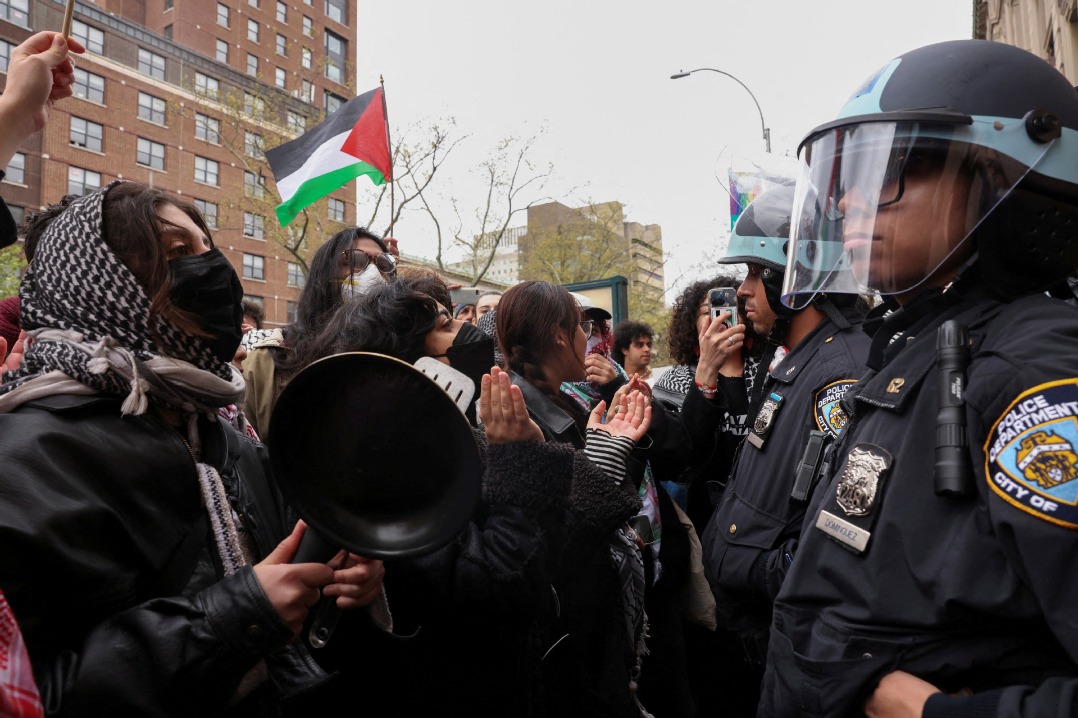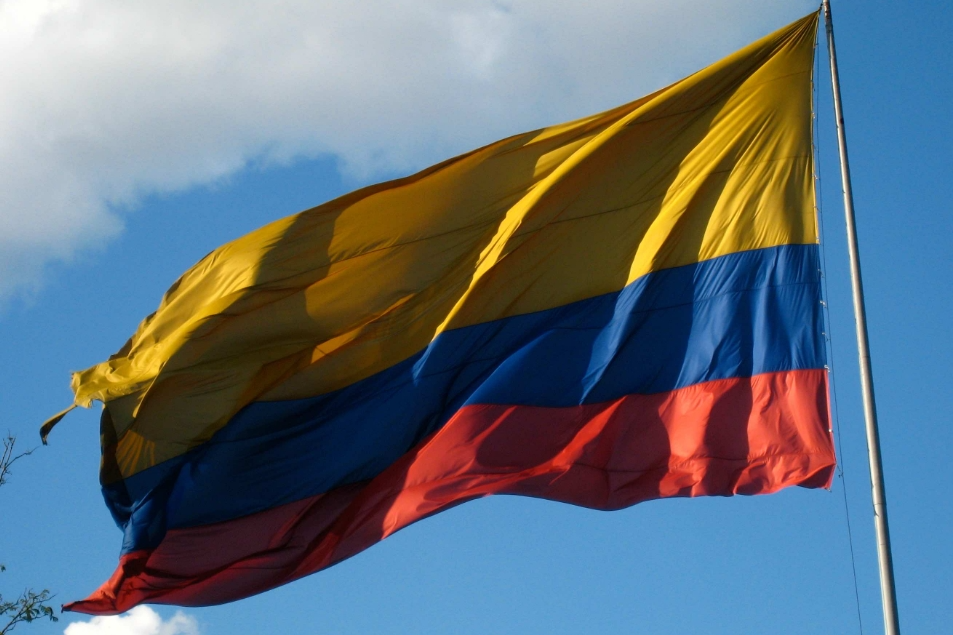Neighbors seek to limit spiraling row


Japan and the Republic of Korea will try to keep a row over forced labor in World War II from spiraling into a crisis.
Seoul's top court ruled on Tuesday that Japan's Nippon Steel& Sumitomo Metal Corp must compensate four ROK citizens for their wartime forced labor, a binding verdict Japan denounced as "unthinkable" while expressing hope it would not hurt the uneasy neighbors' cooperation.
The ROK Foreign Minister Kang Kyung-wha and her Japanese counterpart, Taro Kono, stressed in a Wednesday telephone call the need to keep cooperating "for the future oriented development of the relationship", her ministry said.
Japanese firms invested $1.84 billion in the ROK last year, its second largest foreign investor, Korean data shows.
But their ties have been plagued by the legacy of Japan's 1910-45 colonization of the Korean Peninsula.
"Japan feels it has already resolved the issue legally and they don't want to show flexibility because it would open up a Pandora's box of claims" against other Japanese companies, said Jeffrey Kingston, director of Asia studies at Temple University's Japan campus.
There are 14 similar lawsuits pending against firms including Mitsubishi Heavy Industries Ltd and Mitsui Mining and Smelting.
Two are class action suits with a total of 752 plaintiffs.
Seoul said there were nearly 150,000 victims of wartime forced labor, 5,000 of whom are alive, but families of those who have died can also make a claim.
Japan has threatened to seek international arbitration in the dispute, but Kono said Tokyo would wait to see what decisions Seoul will take.
"We're just starting to explore next steps, with a task force to be created under the prime minister with private experts too," a ROK government official said. "It's really difficult, but we need to come up with a wise idea that can minimize the consequences."
Japan said the compensation issue was settled by a 1965 treaty normalizing ties.
Past ROK governments have agreed, but the Supreme Court said the treaty left open the door for individuals to seek recompense. Moon's government had said it would respect the court's decision.
Some experts in Japan said one option could be for the ROK to create a fund to compensate former laborers, perhaps with financing from companies in both countries. Some ROK firms benefited from Japanese aid under the 1965 treaty.
In 2000, the German government and companies set up a forced labor fund to compensate Hitler-era victims, a format some experts said could be a model for Japan - although whether Japanese companies would be willing to contribute is not clear.
Reuters, Xinhua, AFP and Wang Xu in Tokyo contributed to this story.



































